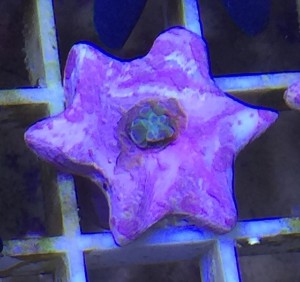How small is too small? For coral, I think there is none too small to be loved and cared for. The challenge is that past a certain size, the smaller they are the harder time they have surviving. For over a decade, I have been refining my craft of growing coral from asexually propagated fragments smaller than newly settled coral larvae.
Coral are remarkable creatures, and their cellular biology allows them to survive even at these minuscule sizes. A large coral colony has a more robust immune system that matures with size; coral cells in a large network have an easier time growing into polyps and colonies of polyps, but it is possible to grow a full animal from colonies of cells, or even one cell. Coral are rife with stem cells, and in fact many of the various cell types in their bodies can revert back to stem cells, the only exceptions being nematocysts and nerve cells. To ensure quick and robust growth after fragging anemones and coral, I recommend including all tissue types (both epithelial layers and digestive tissue), as different stem cells form different tissues. It is, however, possible to grow an entire colony from one single pluripotent “mother” stem cell. These aren’t as common in the coral as the “downstream” differentiated stem cells, but these “mother” stem cells have the ability to the stem cells that then make all the various types of tissue in the coral.
Culturing coral stem cells is quite difficult and requires sterile conditions, and inducing hard coral to start developing skeletal tissue is a challenge in its own right. It much easier to induce healing and growth if you start with piece of coral that has tissue and a little bit of skeleton. The sub-larvae sized tissue cultures are prone to predation, as well as encroachment by bacteria, algae and various other organisms. Even coralline algae, exalted as a beneficial species in our reef tanks, with quickly overcome and kill such small propagules. These tiny pieces require time and the utmost care. But every piece of coral you frag, even the accidental “crumbs”, have the ability to develop into full sized coral, given the proper environment and husbandry.













0 Comments